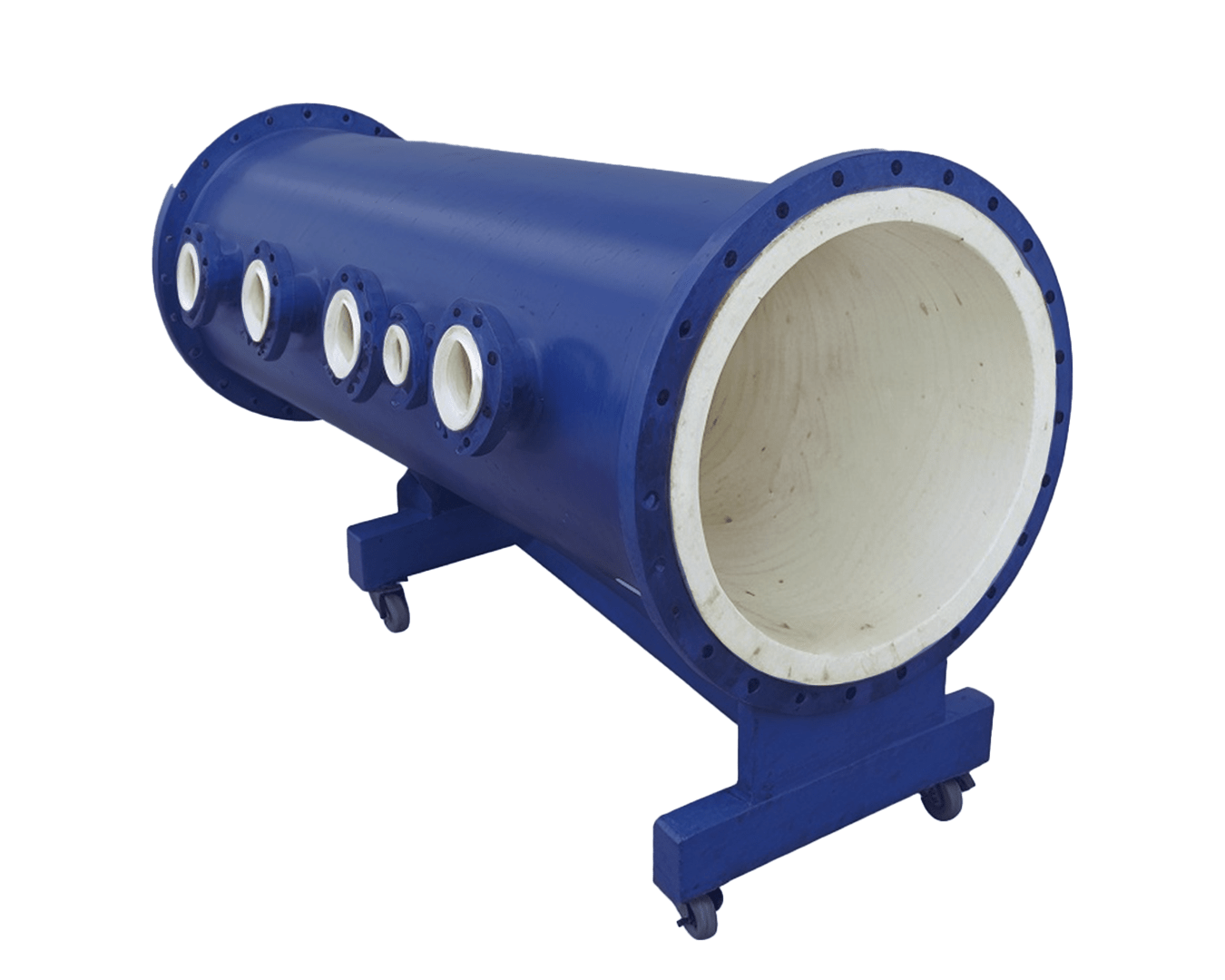In pharmaceutical manufacturing, strict adherence to cleanliness, chemical compatibility, and contamination control is essential. PTFE lined tanks and vessels have been widely adopted in this industry for their non-reactive surfaces and exceptional resistance to aggressive cleaning agents and process chemicals. Their use ensures that the final pharmaceutical products are produced under safe and sterile conditions, while also enhancing the operational reliability of storage and mixing systems.
What Are PTFE Lined Tanks and Vessels?
PTFE (Polytetrafluoroethylene) is a high-performance fluoropolymer known for its inertness, non-stick surface, and thermal resistance. When applied as a lining inside storage tanks or processing vessels, PTFE provides a seamless barrier between the vessel material—usually stainless steel or carbon steel—and the processed substances.
In the pharmaceutical industry, PTFE lined vessels are used to eliminate any risk of chemical interaction, microbial contamination, or leaching of metallic ions into drug ingredients. This lining helps maintain the purity and stability of pharmaceutical compounds throughout the production cycle.
Applications in the Pharmaceutical Industry
Pharmaceutical manufacturing involves the use of various solvents, acids, bases, and intermediates during different stages of production. PTFE lined tanks and vessels are employed in:
-
API production units
Active Pharmaceutical Ingredients (APIs) require strict purity levels. Lined reactors and storage vessels help prevent contamination during synthesis and storage. -
Solvent storage
Volatile organic solvents can be stored safely in PTFE lined tanks due to the lining's excellent barrier properties and chemical inertness. -
Cleaning chemical storage
Strong cleaning agents like hydrogen peroxide or peracetic acid are stored in PTFE lined tanks to prevent corrosion of storage equipment. -
Buffer preparation vessels
pH adjustment and buffer solutions, which are sensitive to contamination, are prepared and held in PTFE lined vessels for purity assurance.
Advantages in Pharmaceutical Operations
The benefits of using PTFE lined tanks in pharmaceutical facilities extend beyond corrosion resistance. These vessels contribute significantly to:
-
Compliance with hygiene standards
PTFE’s non-stick and non-porous nature prevents microbial growth and supports easy cleaning, aligning with GMP (Good Manufacturing Practices) and FDA guidelines. -
Chemical compatibility
The inert nature of PTFE allows safe handling of a wide range of aggressive acids, alkalis, and organic solvents used in pharmaceutical formulations. -
Cross-contamination control
PTFE linings help prevent cross-contamination between batches, which is critical in multi-product manufacturing environments. -
Longevity and low maintenance
Equipment longevity is improved due to reduced chemical wear, resulting in fewer shutdowns and minimal maintenance.
Construction and Design Options
Pharmaceutical-grade PTFE lined tanks are often manufactured with mirror-polished external surfaces and custom fittings to integrate into cleanroom environments. Options such as bottom outlet valves, manways, spray balls for CIP (Clean-In-Place), and jacketed designs for temperature control are commonly included.
Each vessel is designed to meet pressure ratings, temperature ranges, and material compatibility based on the pharmaceutical application it serves.
Conclusion
PTFE lined tanks and vessels have become indispensable in pharmaceutical manufacturing due to their unmatched performance in preserving chemical integrity, process hygiene, and operational efficiency. Their ability to resist corrosive substances while maintaining sterility makes them ideal for pharmaceutical applications that demand high purity and regulatory compliance.
When sourcing pharmaceutical-grade equipment, it's advisable to partner with reputable PTFE lined tank suppliers in India or globally, who understand the rigorous demands of the life sciences sector.

No comments:
Post a Comment